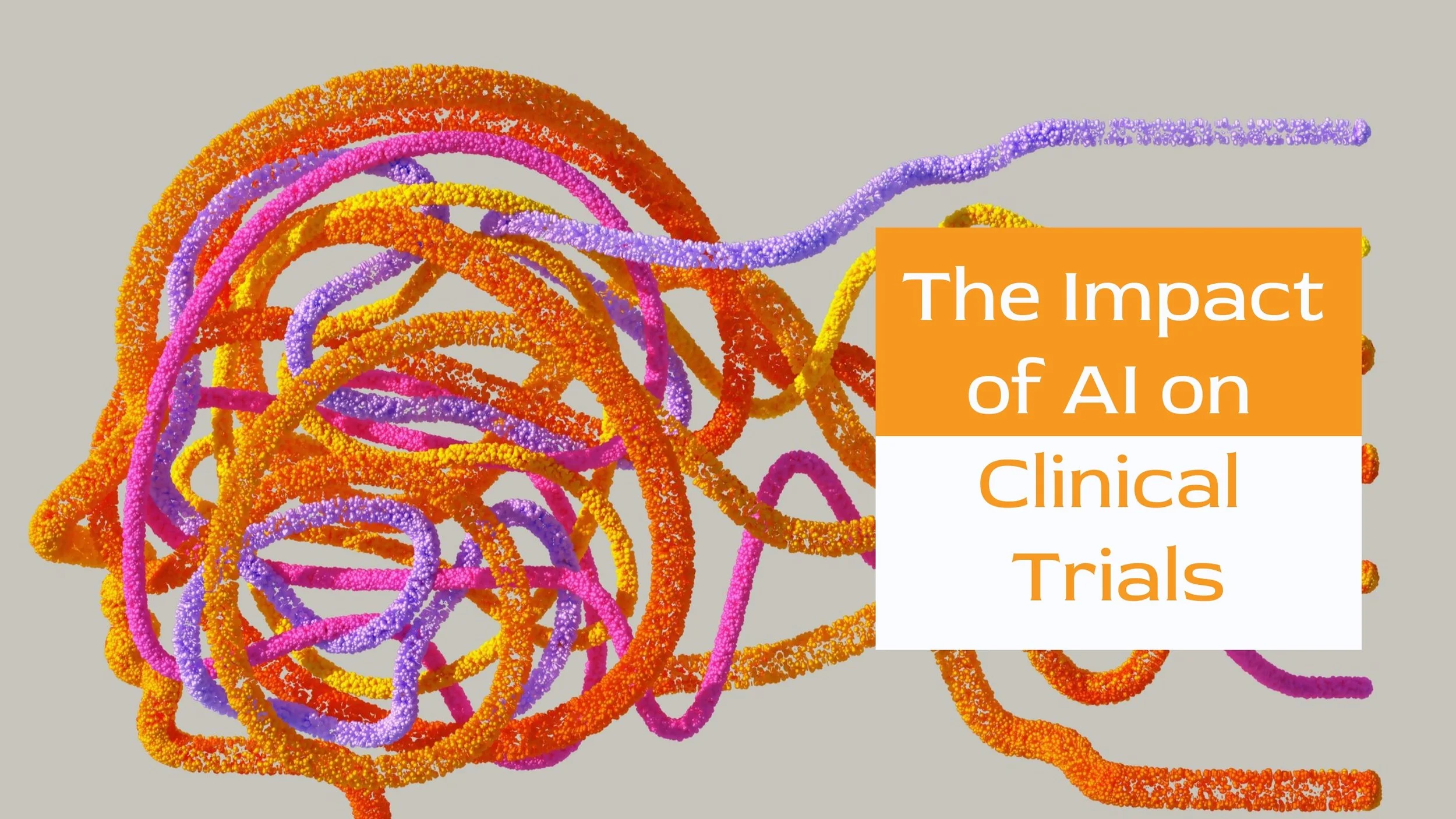The Impact of AI on Clinical Trials
The integration of Artificial Intelligence (AI) into clinical research is revolutionizing the field. The ability of AI tools to aggregate, mine, analyze, and interpret large volumes of data from various sources offers significant improvements in efficiency, accuracy, and innovation.
Here are a few key examples of how researchers are harnessing the power of AI:
Improved trial design: the superior processing power of AI enables researchers to mine the ever-increasing body of available data from research programs, current and past studies, and post-market surveillance to uncover patterns to improve new trial designs.
Biosimulation: AI can predict whether a clinical trial will succeed based on drug molecule, target disease, and patient eligibility criteria, enabling companies to adjust their trial design before it begins.
Patient recruitment: With the ability to sift through large amounts of data, AI tools can process patient information from diverse sources (electronic health records, medical imaging, omics data, etc.) to identify ideal participants.
Data Collection & Adaptive Trials: Amassing data across multiple sites, AI tools enable the integration of information from various digital health technologies, such as wearables, speech technologies, and computer vision, for better remote patient monitoring and analysis, which enables real-time adjustments to the trial design.
Participant Support: AI tools can provide personalized supports (reminders, educational content, etc.) to patients during the trials and can even evaluate the quality of the data submitted, identifying incomplete or low-quality submissions (e.g., a poor photograph) and offering the patient advice for improvement.
Data analysis: Because it can handle large datasets, AI can perform complex analyses and uncover insights that lead to better decision-making faster and more effectively than more traditional analysis methods.
Automated Compliance: Traditional compliance monitoring relies on error-prone manual tracking, but automated AI solutions (like real-time anomaly detection, auto-generated audit trails, intelligent document classification, and predictive compliance alerts) streamlines compliance and audit preparation.
AI is driving advancements in data analysis, patient care, and drug development and enabling clinical trials to be faster, safer, and less expensive. As AI technologies continue to evolve, their integration into clinical research will likely lead to even more innovative and effective healthcare solutions, ultimately benefiting patients worldwide.

